Developing an Inclusive and Authentic education
“The walls of education shall come down”, Che Guevra
By Harsha Munasinghe
The significance of making education accessibleand authentic was proposed by Dr. C.W.W. Kannangara almost a century ago. Even though he is credited for ‘free education’, his proposal was much more comprehensive.
For example, theestablishment of Central Colleges in rural areas testifies to this visionof providing equal opportunities to students and to design a curriculum so that students could unfold their authentic selves.These schools instigatedthe socio-economic development of those rural locations by giving them a new identity, while helping the students tobuild upon their strengths in familiar settings.Hisproposal toteach primary classes in the mother tonguesof students, thus making strong links between students and their learning,while teaching English as a language from Grade 3helped evolving an education that would balance emotions, intellect and practicality.
As such, this initiative inspired learners to understand the world and theirpossible contribution to make it a more liveable place. We could easily see the reflection of Confucius’ concept of education. Later, Dr P. Udagama overhauledschool curricular in 1970s,initiatingan authentic and holistic education that could have had a significant impact on the socio-economic milieu of Sri Lanka. He initiated new streams such as technology and integrated vocational training in school-education, so that education could be more applied, related, and place-orientedthus opening an array of new avenues for learners.
By expandingon theirinitiatives, we could have avoidedthepresent-day misconception of education as a ladder to climb up the social class or a means to earn a social status. We shall take necessary steps to reshapeour education to facilitate a creative and constructively-criticaleducated society by making education authentic and inclusive to the extent that learners could understand how their education is built for them. Such an education could deviate from the present-daydata-pouring and memory-testing system that makes instruction-followers towards fine-tuningan educated group of decision-makers.
The quality of educationplays a key role inthe socio-economic developmentof a country, and this qualityshould not be measured only by employability. Furthermore, our colonial-crippled thinking seems to sum upthat the only obstacle for the poor employabilityof our graduates is their inability to communicate in English.
Whenever the need to improve the quality of education is discussed, we bring the issue of employability and then communicating in English -- a phenomenal dead-end. Education should function to meet the needs of the society, of which it is a very significant component. Its functioning may be expressed in economic terms as a matter of equipping the workforce with relevant skills and capacities too, yetit should be more in terms of inducting people into cultural and moral norms, without which the society could not evolve in the right direction.
Theparents’ battle to send their children to popular schoolsand the proposal of the Ministry of Education to teach all subjects in English medium from Grade Ireflect the current misconceptionof the function of educationand the presumed links between quality of education, employability and communication in English. Language is one of the key pillars of any culture, and learning in someone else’s language, let alone the fact that most syllabuses are designed to achieve international accreditation, will distance students from what they learn hence shutting down their thinking process.
At the same time,the lack of knowledge of their mother tongues will further deter their commitment to the socio-economic development of the country. We will be eventually making our educated lot foreigners in our own context -- or a floating sub-society with no roots. Our problem lies more in the outdated curriculum borrowed from the western worldand stagnant teaching materials and methods than in the medium of instruction.
The emergence of new schools, universities, university programs, etc. as well the increase in university intake is mere quantitative achievements, often used for the image building of politicians. They have not improved country’s education. The schools have become tuition classes that focus on exam-passers and universities have become vocational training facilities that turn out wage-slaves. They all have ignored their role in facilitating a learning environment or in other words providing the students with a key to a new world.
Having noted that their degrees alone are not making them employable, most of our undergraduates follow programs outside their universities to collect a few more certificates while completing their degree programs, as such making sure that they are the most qualified wage-slaves.One wonders if the Sri Lankan employers are only interested in what their prospective employees have rather than what they could.
An employer who contacted me recently to ask about a former studentemphasized that they were looking for the right attitude rather than grades, and whether that student could contribute to the growth of the work-place rather than being a passive instruction-follower. Among the reasons for students’ lack of enthusiasm in learning and focusing on collecting certificates and then treating their jobs as a way of earning their livingis the absence of accessibility to the programs they like to follow. Since they are not paying to get their certificates, they may not be bothered if they learn anything useful.
Since they hardly ask questions or challenge what they are taught, teachers find no reasons to update their knowledge or improve their methods of teaching. It is a fact that schools and post-secondary institutions hire teachers without any formal teacher training. They are required take certain training programs to assure job security or promotions.
Again, attending such programs have become a mere certificate-collection process rather than student-teachers making attempts to move out of their comfort zones. In short, both teachers and students have become victims of this non-inclusive and non-authentic education process.
Many countries demand school teachers to have at least abachelor in education. Their teacher training includes in-class practicing as well as pedagogical reinforcements. No wonder why those teachers are well-equipped to facilitate learning. Teachers have a huge responsibilitytoturn out creative thinkers or innovators. They shall notexpect students to become apassive listener but a true learner. Both teachers and students have the responsibility to move away from the current guild-practice: teachers updating their knowledge and improvingtheir delivery accordingly and students making attempts to become true learners and not grade-seekers.
Many educationists find that it is high time for the state to fund research on education with the aim of preparing a master plan to include a clear vision and milestones to develop an education that is authentic to Sri Lanka.Such a master plan should first define what education is in Sri Lankan context and then provide guidelinesto planners and teachers to improve the quality ofteaching.
There are many institutions responsible for research in education and various university programs and scholars capable of undertaking such research. What we require is an initiative from authorities to improve quality of education. The state should also focus on diverse level of education rather than making attempts to increase the number of university entrants by planning programs that have no value in our society. We require an assurance that the authorities are interested in improving our education to be more inclusive and authentic: educating our next generation to develop the country rather than finding a job outside the country.
This paradigm shiftmay start with defining what education is and then understanding its socio-cultural bearings to integrate inculcating basic skills to testing high-flown ideals concerned with civilized thinking and behaviour.In order to closely look at this contested concept,it is important to ask what to expect from an educated person:we expect a more civilized or cultured behaviour from an educated person as Confucius stated many centuries ago.
An educated person shall not use his/ her education for image building but as a meansto help shaping a better world. If we compare an institution that trains students to make instruments to torture others with another that trains students to heal others, this argument becomes clear. As such a medical schoolshould trainhealersrather than enculturatinga professionally-qualified doctor; an artificially-constructed persona.Institutions shall move away from unwanted social segregations or class structures to make their education inclusive and their product would appreciate such social diversity.
By nature, our society is full of such backward thinking as schools attended, castes, family ties, home address, etc. thus the institutions should ensure that their products are equally treated and equally fine-tuned, so that they would be trained to conduct themselves in such a manner. Our intention of making education inclusive should move beyond the concept of universal design for learning, mooted in 1970 to reshape the physical environment, to make learning spaces psychologically-accessible.
Facilitating individuals living a better life, fulfilling their personal goals, or even achieving a critical and rational autonomy in their lives, education may play a vital role in personal as well as societal development. It must be clearly stated that the role of education is not to depress the expectations and ambitions of those to whom our society could not offer rewarding work.
Discarding them as failures or liabilities just because their country could not afford a learning-path mayresult in unnecessary tensions in the society.If the state requires docile wage-slaves, then there cannot be unrestrained development of critical autonomy.
Although,studentsare taught to initiate moral and cultural norms of their society, they should also be promoted to question and even to oppose such norms as racism, sexism, bullying or homophobia. It must also be noted that sometimes education is, or has been, conceived in ways that do not accord with what may seem to be simple common-sense or what we have been forced to believe through our faiths. Not everybody is likely to be comfortable with the idea of such open-mindedness in education yet that is where we find the particular inclusiveness in education that is authentic to us.
There has nevertheless been a fair measure of consensus in the educational thinking that education indicates a clear process through which learners expand their intellectual horizons.
No one argues that studentscan be made to become initiated into the various kinds of knowledge that are worthwhile for the entire humankind. Yet, education could connote such an enterprise of encouraging students to rise above their local and particular circumstances, and achieve the self-directedness and the understanding of universal moral of aesthetic principals that constitute the attainment of authentic humanity.
This process of education, as a process, may free students from the contingencies of the world that s/he happens to have been born into, opening up a real of wider ideas and values. Education may be the acquisition of skills with an end-goal such as a qualification, yet at the same time it should be the way to make students good citizens.This is where authenticity is found in order to make education, guided by norms and ideals internal to the society yet not laid down from outside by individuals or institutions.
We should also understand that these norms and values are only guides and not the gospel truth. This is why we should encourage students to question them. An inclusive and authentic education, by and large, should be more like opening the eyes of students or removing barriers to learn, to use what is learnt, and then to update knowledge to suit the evolving socioeconomic values.
Education should be treated with caution. The ideal of education as having intrinsic values cannot be conclusively demonstrated. We can only depict it as best we can and ask others to test it against their own intuitions about the highest things that human beings are capable of and how they might be prepared to achieve them. Handled in this way, the very process of thinking about education itself is educative. The simple answer to a question what we expect from an educated person in our context may provide guidance to develop an inclusive and authentic education to free our future minds to become more creative and innovative.
Harsha Munasinghe
Professor, School of Architectural Studies, George Brown College, Toronto Canada
(formerly: Professor and the Head, Department of Architecture, University of Moratuwa)
-
Still No Comments Posted.




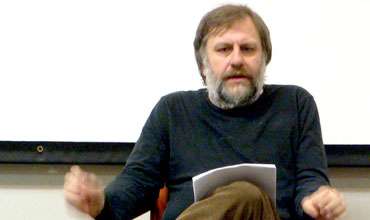
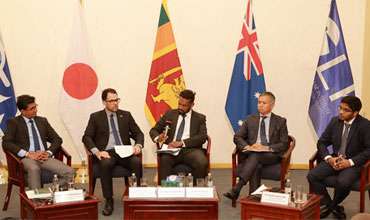
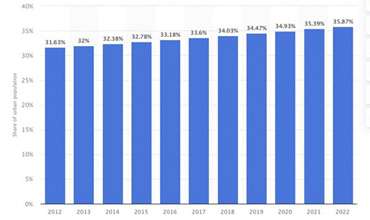
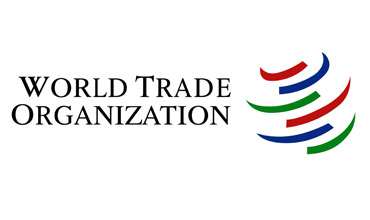
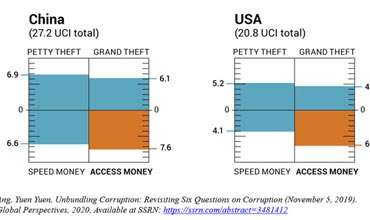
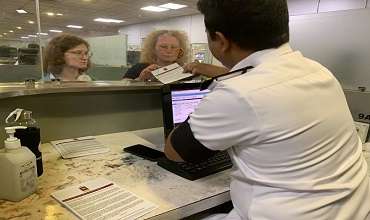
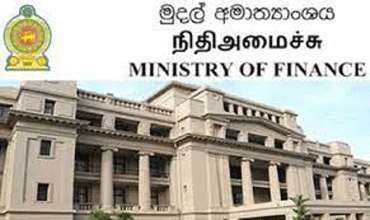
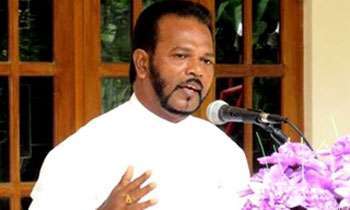

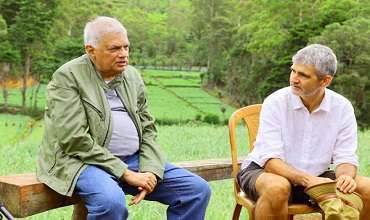

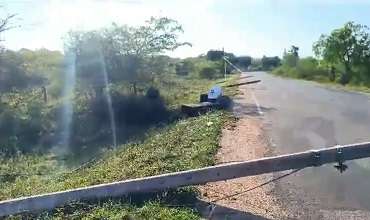
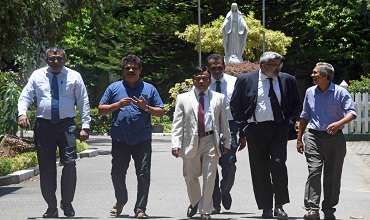
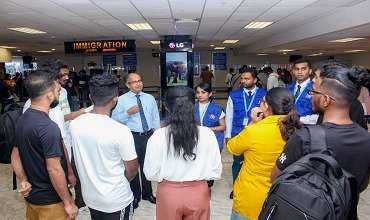
Leave Comments